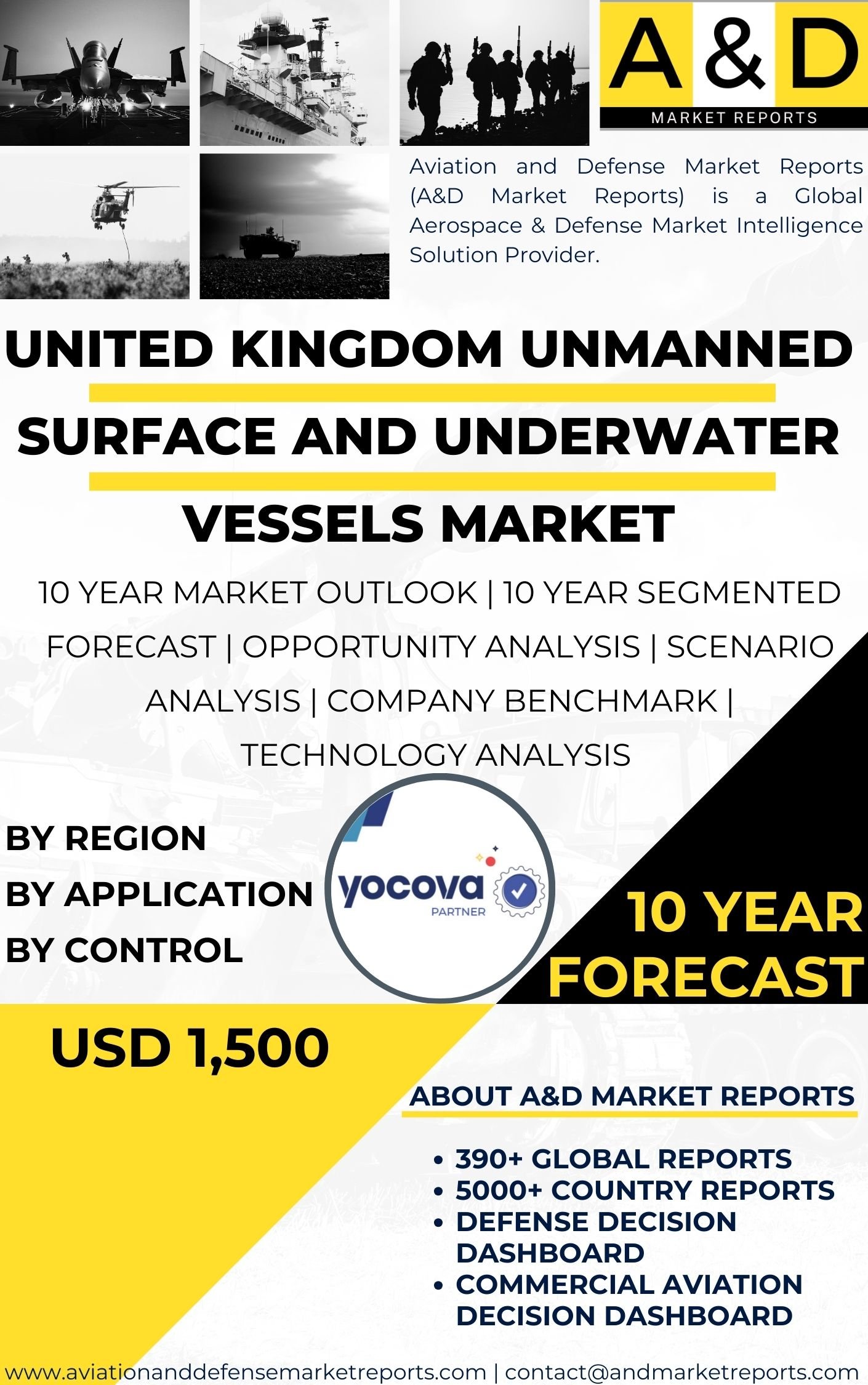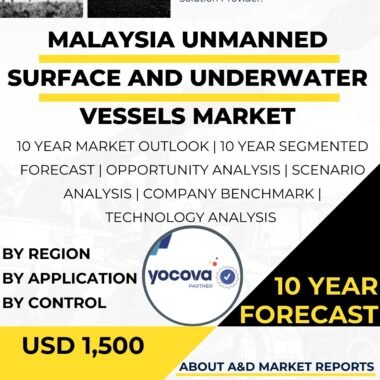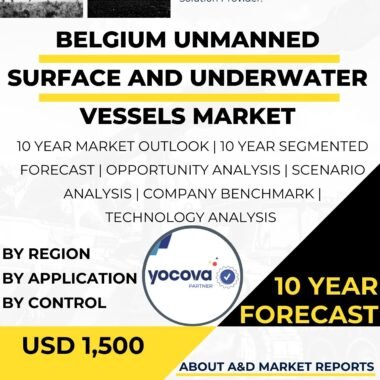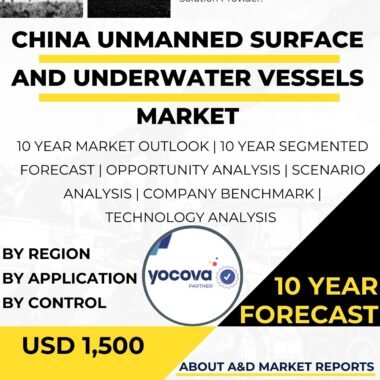Description
UK Unmanned Surface and Underwater Vessels Market Overview
The United Kingdom Unmanned Surface plays a strategic role in the country’s maritime operations. These unmanned systems, which operate both on the sea surface and underwater, enhance mission efficiency while reducing risks to personnel. They are employed in surveillance, reconnaissance, mine clearance, seabed mapping, and scientific exploration. Their ability to operate autonomously in hazardous or remote maritime environments makes them vital for modern naval operations. With increasing technological sophistication, these platforms are becoming an integral part of both defense and civilian maritime missions.
Development in the UK Unmanned Surface and Underwater Vessels Market
Development in this sector is driven by government and industry investments aimed at creating resilient, high-performance systems. Designers focus on improving endurance, navigation accuracy, and autonomous operation to meet the demands of dynamic maritime missions. These advancements ensure the UK can respond effectively to emerging threats, safeguard its waters, and maintain long-term maritime readiness. Continuous innovation supports both defense objectives and civilian applications, such as environmental monitoring and underwater research, allowing the country to strengthen its overall maritime strategy.
Applications Across Maritime Operations
Unmanned surface and underwater vessels serve diverse operational roles across UK waters. In defense, they are used for coastal patrols, anti-piracy missions, mine detection, and intelligence gathering. In the civilian sphere, these platforms support oceanographic research, environmental studies, port inspections, and seabed mapping. Their ability to navigate deep, turbulent, or hazardous waters without human presence provides a unique advantage. This flexibility enhances the UK’s maritime surveillance, improves disaster response capabilities, and supports scientific and industrial projects in challenging marine environments.
Technology Integration in the UK Unmanned Vessels Market
Modern UK unmanned maritime systems incorporate advanced technology to maximize mission effectiveness. Autonomous control systems, precision sensors, high-bandwidth communication networks, and data analytics are key enablers. These technologies allow vessels to detect underwater hazards, track targets, and relay information in real time. Robust software and navigation systems help them adapt to unpredictable sea and underwater conditions. Ongoing technological upgrades ensure the platforms remain capable of performing complex missions in both defense and civilian contexts, supporting decision-making and operational reliability.
Enhancing Maritime Awareness and Protection
Unmanned vessels significantly improve maritime situational awareness and border protection. They can monitor vast ocean regions without exposing personnel to danger, collecting intelligence on potential threats such as illegal fishing, smuggling, or hostile activities. Long-endurance missions allow for extended surveillance, ensuring timely detection and response. The data gathered also supports strategic planning for the navy and civilian agencies. These capabilities not only strengthen maritime defense but also enhance safety for shipping lanes, offshore infrastructure, and coastal communities.
Interoperability and Joint Operations
Successful deployment of unmanned vessels requires seamless integration with other naval assets and systems. They must communicate effectively with command centers, surface ships, submarines, and underwater sensor networks. Interoperability ensures rapid data sharing, coordinated operations, and unified mission execution. Working alongside manned platforms enhances overall operational effectiveness and mission accuracy. This integrated approach is essential for complex naval missions, multi-agency maritime operations, and real-time threat mitigation, allowing the UK to maintain operational superiority at sea.
Innovation and Industry Development
The UK unmanned maritime sector continues to advance through innovation in payload capacity, endurance, navigation, and autonomy. Manufacturers test new applications across defense, research, and commercial sectors, from anti-mine operations to environmental monitoring. Continuous innovation strengthens the country’s global position in unmanned maritime technologies. By developing cutting-edge platforms, the UK can stay ahead of evolving maritime threats, meet operational demands, and expand commercial opportunities in the unmanned systems industry, ensuring sustainable growth and technological leadership.
Skills and Training Needs
Operating unmanned surface and underwater vessels requires specialized training for both operators and technicians. Personnel must understand system controls, risk management, mission planning, and maintenance procedures. Technicians need expertise in repairing and upgrading vessels to ensure reliability during missions. Comprehensive training programs improve operational confidence, reduce errors, and support safe execution of high-risk tasks. Continuous skill development ensures that teams are prepared to handle advanced systems, adapt to new technologies, and maximize the value of unmanned maritime platforms.
Strategic Deployment and Maritime Planning
The UK aligns unmanned vessel deployment with its broader naval strategy to maximize operational impact. This includes defining mission priorities, assessing risks, and planning long-term usage to meet national defense and civil objectives. Proper strategic deployment ensures surveillance, protection, and scientific missions are conducted efficiently and safely. By integrating these platforms into comprehensive maritime operations, the UK can effectively manage emerging threats, optimize resource allocation, and maintain readiness for both peacetime and conflict scenarios.
Challenges in the UK Unmanned Surface and Underwater Vessels Market
Despite rapid advancements, the sector faces several challenges. Continuous investment in research and development is required to maintain technological superiority. Countermeasure technologies developed by adversaries pose evolving risks. Handling large volumes of data from unmanned systems, ensuring maritime situational awareness, and integrating platforms into existing networks remain complex tasks. Regulatory compliance, safety protocols, and environmental protection laws must also be strictly followed. Addressing these challenges is essential to sustain operational efficiency and maximize the effectiveness of unmanned maritime systems.
Conclusion
The UK unmanned surface and underwater vessels market is a cornerstone of modern maritime operations. These systems enhance surveillance, threat detection, exploration, and maritime safety while minimizing human risk. Ongoing research, technological innovation, and targeted training are crucial for maintaining their effectiveness. With careful planning, strategic deployment, and skilled personnel, the UK can fully leverage unmanned maritime systems to strengthen its naval capabilities, ensure maritime security, and support a wide range of civilian and scientific missions.




